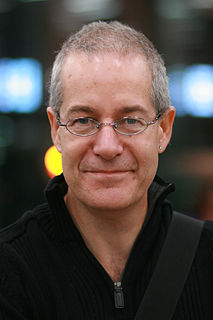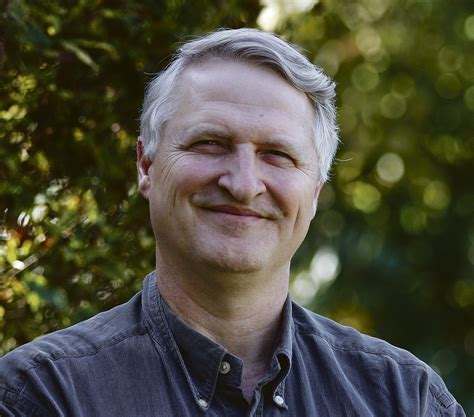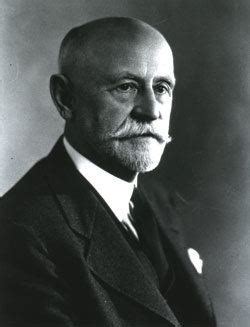A Quote by Bertrand Russell
An atheist, like a Christian, holds that we can know whether or not there is a God. The Christian holds that we can know there is a God; the atheist, that we can know there is not. The Agnostic suspends judgment, saying that there are not sufficient grounds either for affirmation or for denial. At the same time, an Agnostic may hold that the existence of God, though not impossible, is very improbable; he may even hold it so improbable that it is not worth considering in practice. In that case, he is not far removed from atheism.
Related Quotes
If you are a Christian, you can still practice Stoicism and think of the Logos as the Word of God. If you are a secular person, an agnostic or an atheist, you may treat the Logos as "Einstein's god," that is the factual recognition that the cosmos is ordered according to rational principles, without which science itself wouldn't be possible.
People are invariably surprised to hear me say I am both an atheist and an agnostic, as if this somehow weakens my certainty. I usually reply with a question like, “Well, are you a Republican or an American?” The two words serve different concepts and are not mutually exclusive. Agnosticism addresses knowledge; atheism addresses belief. The agnostic says, “I don't have a knowledge that God exists.” The atheist says, “I don't have a belief that God exists.” You can say both things at the same time. Some agnostics are atheistic and some are theistic.
I am an atheist. There, I said it. Are you happy, all you atheists out there who have remonstrated with me for adopting the agnostic moniker? If "atheist" means someone who does not believe in God, then an atheist is what I am. But I detest all such labels. Call me what you like - humanist, secular humanist, agnostic, nonbeliever, nontheist, freethinker, heretic, or even bright. I prefer skeptic.
I am not agnostic. I am atheist. I don’t think there is no God; I know there’s no God. I know there’s no God the same way I know many other laws in our universe. I know there’s no God and I know most of the world knows that as well. They just won’t admit it because there’s another thing they know. They know they’re going to die and it freaks them out. So most people don’t have the courage to admit there’s no God and they know it. They feel it. They try to suppress it. And if you bring it up they get angry because it freaks them out.
The atheist does not say 'there is no God,' but he says 'I know not what you mean by God; I am without idea of God'; the word 'God' is to me a sound conveying no clear or distinct affirmation. ... The Bible God I deny; the Christian God I disbelieve in; but I am not rash enough to say there is no God as long as you tell me you are unprepared to define God to me.
There is exactly the same degree of possibility and likelihood of the existence of the Christian God as there is of the existence of the Homeric god. I cannot prove that either the Christian god or the Homeric gods do not exist, but I do not think that their existence is an alternative that is sufficiently probable to be worth serious consideration.
Yes, I think I use the term radical rather loosely, just for emphasis. If you describe yourself as atheist some people will say, Don't you mean agnostic? I have to reply that I really do mean atheist, I really do not believe that there is a god; in fact, I am convinced that there is not a god (a subtle difference). I see not a shred of evidence to suggest that there is one...etc., etc. It's easier to say that I am a radical atheist, just to signal that I really mean it, have thought about it a great deal and that it's an opinion I hold seriously.
If it is to be established that there is a God, then we have to have good grounds for believing that this is indeed so. Until and unless some such grounds are produced we have literally no reason at all for believing; and in that situation the only reasonable posture must be that of either the negative atheist or the agnostic. So the onus of proof has to rest on the proposition of theism.
No it's not!" said Constable Visit. "Atheism is a denial of a god." "Therefore It Is A Religious Position," said Dorfl. "Indeed, A True Atheist Thinks Of The Gods Constantly, Albeit In Terms of Denial. Therefore, Atheism Is A Form Of Belief. If The Atheist Truly Did Not Believe, He Or She Would Not Bother To Deny.


































